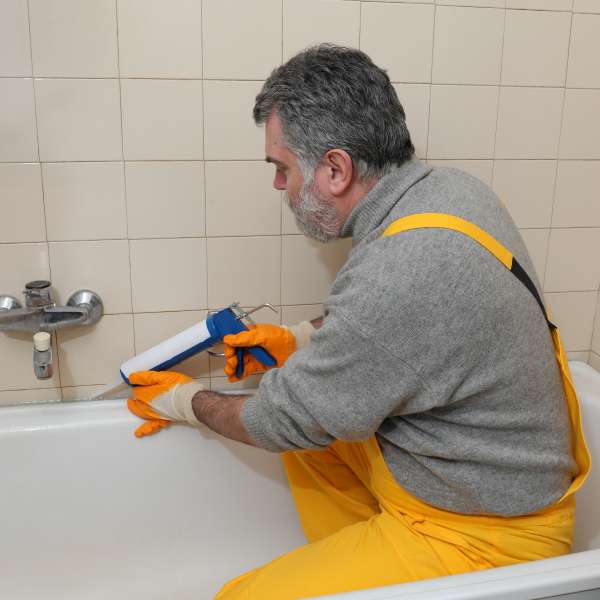
Do you want to start a business that will allow you to live comfortably? Do you enjoy helping others with basic plumbing jobs and emergencies? Do you consider yourself a great all-rounder who can repair various plumbing systems and bathroom appliances? Then you might want to explore a career as a plumber.
Plumbing is a profitable and appealing industry, which pays around $56,000 on average per year (according to Bureau of Labor Statistics data). Homes regularly need plumbing repairs, and there’s always a need for contractors who can come to the rescue in a plumbing emergency. As such, more and more people are launching their own plumbing businesses to tap into this lucrative market.
But how can you obtain a licence as a plumbing contractor? What do you need to know before you get started? While the requirements for becoming a plumber vary from state to state, there are general steps that you’ll likely need to take regardless of where you will be working.
Here are five steps to becoming a plumbing contractor.
1. Get trained up by completing an apprenticeship
After graduating from high school or completing your General Educational Development (GED), you may wish to explore enrolling in a plumbing apprenticeship. While this isn’t the only option to gain the skills needed to succeed in the field, most plumbers pursue this route. Apprenticeship programmes typically last four to five years.
Completing an apprenticeship will give you on-the-job training in all areas of plumbing, including waste systems, installing pipes, and fixtures. You’ll also learn about the plumbing industry’s safety standards, plumbing laws, working norms, and numerous other regulations.
Plumbing training is often provided through technical institutions and vocational colleges. Typically, you must attend both theoretical and practical sessions to complete an apprenticeship. If paying for this training is a concern, there may be scholarships offered by various organizations, labour unions, and local businesses that can help cover the cost. Some employers may pay education fees for you, so long as you commit to working for them for a set amount of time after you’ve completed the apprenticeship program.
2. Obtain your plumbing licence
After completing an apprenticeship programme satisfactorily, you can obtain a plumbing licence and be referred to as a licenced journeyman plumber. This means you can accept jobs and provide plumbing services without supervision. Bear in mind that being a certified journeyman requires you to produce the essential documentation, pay the applicable fees to the state licencing agency, and pass an exam.
Depending on state rules, 1-5 years of verifiable experience is necessary to become a licenced master plumber. To become a licenced master plumber, candidates must sit a supplementary exam and complete the state’s specified qualifications. Although the terms are sometimes used interchangeably, there are significant differences between journeymen and master plumbers:
- When a master plumber works, he is frequently joined by an apprentice.
- You’ll need to be a master plumber if you want to start your own contracting company.
- The team’s decision-maker or supervisor is regarded as the master plumber.
3. Become a legal contractor
To become a legal contractor, you’ll need to undertake a few more procedures to receive a plumbing contractor’s licence. After obtaining the correct license, you can start a plumbing firm, hire contractors, and subcontract work to other qualified plumbers.
Each state has its own set of standards and requirements in place to become a licensed contractor. In most cases, the contractor’s state licence board requires candidates to pay an application fee and complete a series of exams covering law, regulations, and building codes. You may also be required to show proof of financial credibility to demonstrate you have the financial means and capacity to start a contractor firm.
- Exam preparation and renewal courses are available in community colleges and schools.
- Licenses are renewed on an annual basis, depending on the state.
- Before your licence is renewed, you may be required to complete further education.
4. Ensure you have the correct insurance
While not all states require proof of insurance before issuing contractor licences, having your own ensures the safety of your company. Unexpected occurrences and unfavourable conditions can occur at any time, and failure to prepare can put your company in serious financial jeopardy.
If you do not have the correct insurance in place, you could be responsible for any legal costs that result from an ensuing lawsuit. Getting the correct insurance for your plumbing firm acts as a protection against financial dangers and commercial threats, so it’s better to be safe than sorry.
- General Liability insurance covers you against claims of personal injury and property damage brought by third parties. This coverage may be mandated by your state or be required by your commercial landlord.
- A surety bond protects and guarantees your work, and any performed by the contractors you work with. This may be a legal requirement of working as a plumber in your state.
- Workers Compensation protects you and your employees in the event of a workplace injury or illness. This coverage is required in most states if you have employees and for sole proprietors, in some cases.
5. Develop your business skills
You must keep up with the newest trends and problems to stay ahead of the competition. It may be simple to obtain a plumbing contractor’s licence but getting recognized and building your business is something different entirely. If you want to run a successful plumbing business, you must arm yourself with the necessary information.
Getting a degree in business or attending a business management course is not a prerequisite for plumbing contractors. However, it could help you run your business well. You may be skilled at repairing pipes but promoting your company in the most efficient and successful manner requires a different set of talents. Remember the following to improve your business skills:
- Short course program that can last anywhere from a few days to several weeks can help increase your knowledge and skills without needed to enroll in a formal degree program.
- Find out if there are any free plumbing training and business seminars available in your local area.
- If a task feels completely out of your wheelhouse (such as bookkeeping, tax filing, or marketing), it may make more sense to hire a professional to run this area of your business.
Ready to protect your plumbing contractor business? BizInsure can help. Start comparing quotes for plumber’s insurance today.



